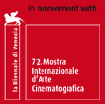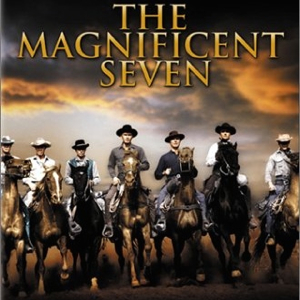|
2016:13thedition
august 31 september 10 |
|
10/08/2016
Seven is the Magic Number
This year is one for the numerologists at Venice Days. Starting with 13, for the number of editions the independent sidebar of the Venice Film Festival has reached in 2016, and for the good luck, not bad, that 13 brings in Italy and can be expected to rub off on all our filmmakers and festival-goers in attendance. Then there's the magical number seven, as in the 7 wonders of the world, the 7 virtues, and the 7 deadly sins as well. The Venice Days program features seven first films and as many films by women filmmakers (with some overlap), both in the running for the Venice Days Award and out of competition. Like the seven chakras, the sources and centers of vital energy, at Venice Days the number 7 represents all the forces driving cinema today, and driving our world in 2016.
"It's a pleasant coincidence, there being so many first films on our lineup this year," remarks director Giorgio Gosetti. "We certainly don't mean to interfere with the efforts of the International Film Critics' Week, which has supported debut films for many years now. The truth is, new cinema is a force that is bursting out into the open, and this year the sense of urgency and the verve of first-time filmmakers could hardly fail to influence our own selection process."
Venice Days' ‘magnificent seven' are universal stories that epitomize the burning desire demonstrated by cinema world-wide to depict the tensions of contemporary life, ill-suited to comedy, unfortunately, a genre in retreat this year. Films that examine issues like social malaise (the Scandinavian entry Sameblod) or the clashes involving different worlds it is hard to choose between (the Italian film La ragazza del mondo and the Croatian-Danish work Quit Staring at My Plate); or fear and vengeance (Hounds of Love from Australia and Pariente from Colombia); romantic quandries (Heartstone, the first Icelandic film to come to Venice), or the tensions that come with adulthood (Polina, danser sa vie, a Franco-Russian tale).
The ‘Seven Wonders' of women's talent refer not only to the astonishing directors who deftly navigate the sea of cinema (like the mermaid we've selected to visually represent Venice Days this year) but also the women in the tales we'll see on the screen. They are often very young (as they are in the Miu Miu Women's Tales entries by Naomi Kawase from Japan and Crystal Moselle from New York) and trying hard to grapple with emotions of all kinds, which are even more powerful when shared, as in the case of Indivisibili, the third feature by Edoardo De Angelis. Under the watchful eye of these personalities, on screen and behind the camera, we'll take our seats on the Lido next August 31 and go around the world, seven times at least.
© Associazione Culturale Giornate degli Autori - Via Santa Croce in
Gerusalemme 107 (RM) - P.IVA 08079171008 - Licenza S.I.A.E. 4858/I/4524
TRASPARENZA - Informativa sull'utilizzo dei cookie - Informativa sulla privacy
Design: EU-GENIA srl - Webmaster: Daniele Sorrentino
TRASPARENZA - Informativa sull'utilizzo dei cookie - Informativa sulla privacy
Design: EU-GENIA srl - Webmaster: Daniele Sorrentino






